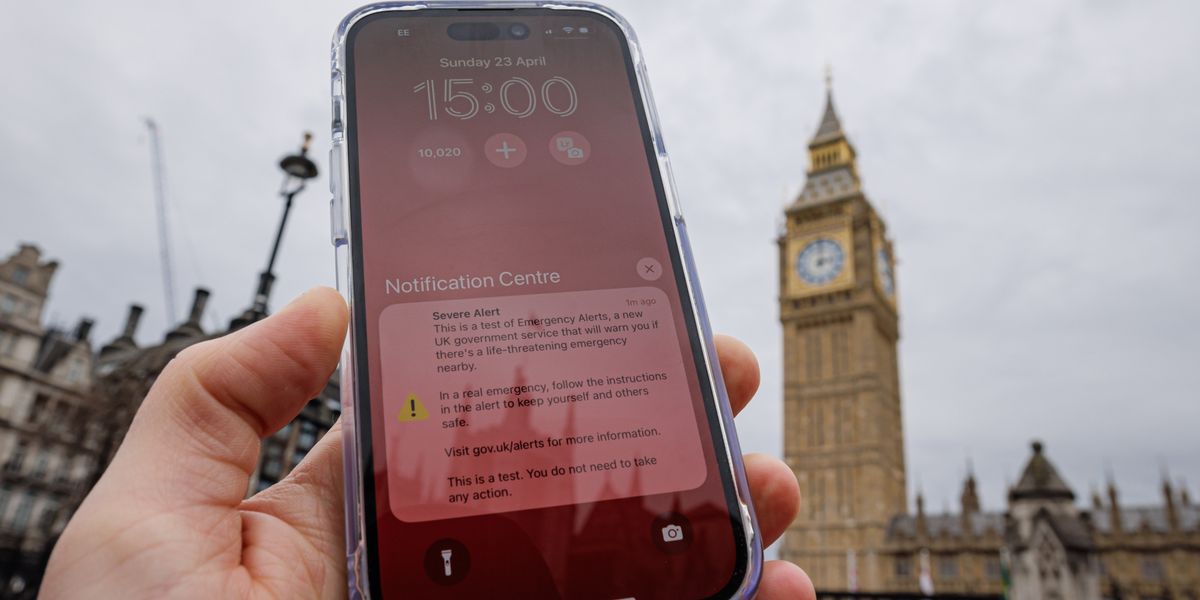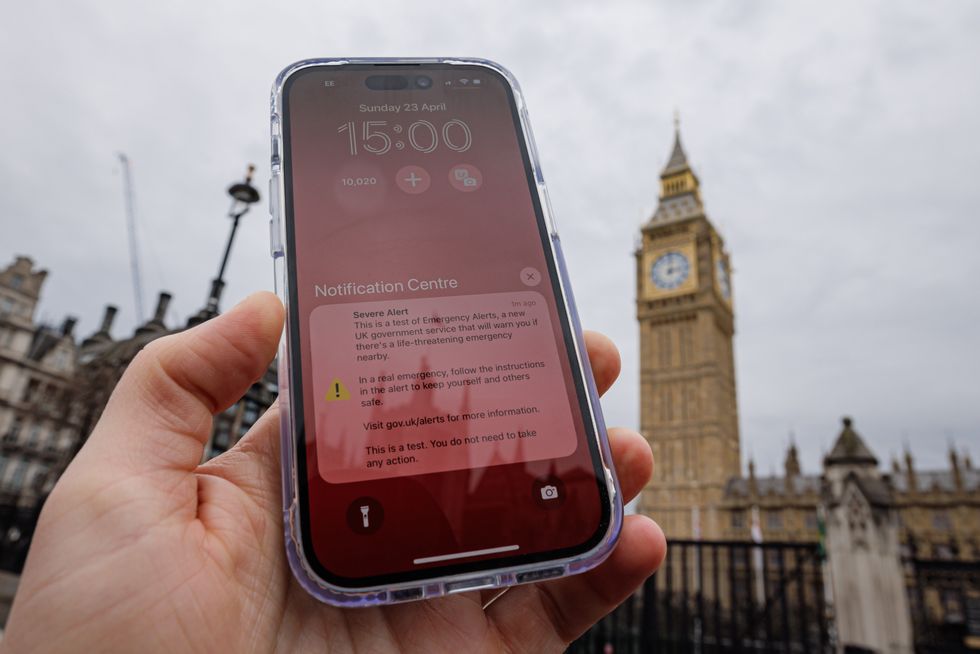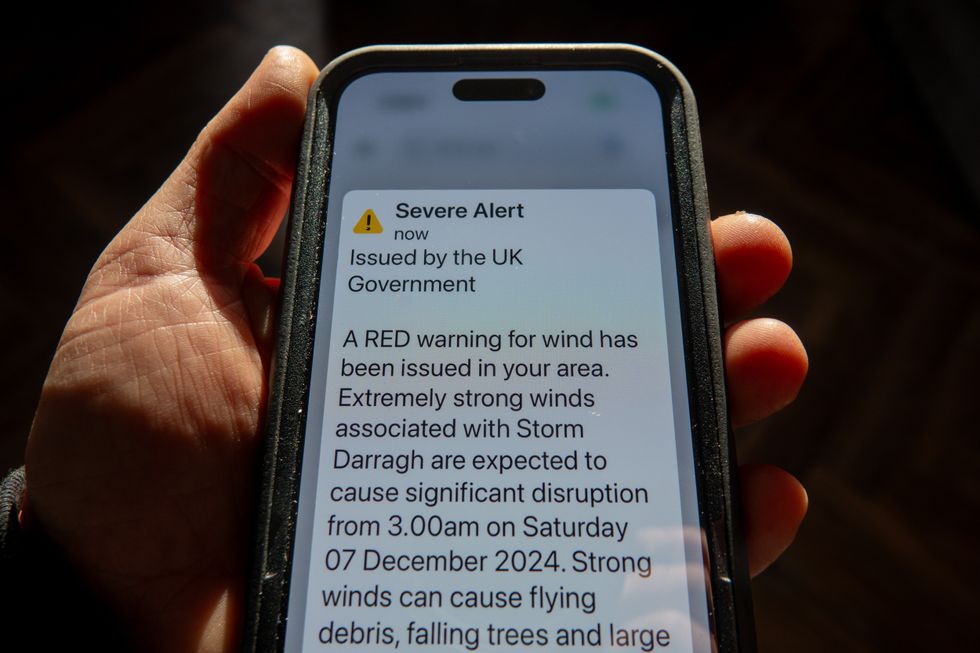



People at risk of domestic abuse have been warned of the potential dangers posed by an emergency alert which is set to be rolled out to millions of phones across Britain.
The Emergency Alert System (EAS) will sound on 87 million devices at 3pm on September 7.
It is used to warn of potential danger nearby, including extreme weather.
The upcoming alert is the latest in the Government's commitment to regularly testing the system to ensure it works optimally, with the first having occurred in 2023.
Mobile phones will vibrate and emit a loud siren sound for approximately 10 seconds - even if they are set to silent mode - with a message also appearing on phone screens.
However, domestic violence charity Refuge has raised concerns that the test could reveal the location of devices which survivors have hidden from their abuser.
Emma Pickering, Head of Technology-Facilitated Abuse and Economic Empowerment at the charity, said: “During the initial roll out of the Government’s EAS, Refuge expressed concerns about how the alerts could indirectly impact survivors who have hidden devices by making their abuser aware of the device.
“We must be clear - abuse is always a choice a perpetrator makes, and technology itself is not responsible.
"When used correctly and as intended, technology can make vast improvements to our lives, and we know that having a hidden device, that can be used to access support without fear of being tracked, can offer a lifeline for many survivors.
 GETTY |
GETTY |
The first emergency alert was sounded on mobile phones across Britain in April 2023
"However, in the hands of a perpetrator of abuse, technology becomes another tool to misuse and weaponise, often with devastating effects."
The charity said it saw a 258 per cent rise in domestic abuse survivor cases involving technology between 2018 and 2022 - but warned this statistic represents "just the tip of the iceberg".
"With technology-facilitated abuse becoming increasingly prevalent and complex, many survivors require secondary devices to be able to safely access support without being monitored by their abuser, Pickering added.
“Abuse doesn’t happen because of an emergency alert, but we know that the widespread use of this system may be incredibly worrying for survivors with a hidden device."

PA
|Refuge has issued advice on how survivors who have hidden devices from their abuse can switch off emergency alerts
Upon the rollout of the first test in 2023, Refuge advised people at risk of domestic abuse to opt out of receiving the alerts on their hidden device.
The charity has published a guide showing how to do this on different models of mobile phone.
iPhone and Android users should search "emergency alerts" on their device's setting and turn off "severe alerts and emergency alerts".
On Huawei devices which are EMUI 11 models or older, people should search their settings for "emergency alerts" and switch off “extreme threats”, “severe threats” and “show amber alerts”.
 GETTY | Around 3.5 million people across Wales and the South West of England received an alert during Storm Darragh
GETTY | Around 3.5 million people across Wales and the South West of England received an alert during Storm Darragh
Since the first EAS was tested two years ago, five other alerts have been sent to mobile phones in Britain including during major storms when lives were at risk.
A red weather warning alert, sent to approximately 4.5million mobile phones in Scotland and Northern Ireland, was issued during Storm Éowyn in January of this year, marking the largest-ever use of the system in the UK.
Around 3.5million people across Wales and the South West of England received an alert during Storm Darragh, which killed two people, in December 2024.
Other countries, such as Japan, the USA and mainland European nations, have implemented similar warning systems.
Speaking on the plan, Pat McFadden, Chancellor of the Duchy of Lancaster, said: "Emergency Alerts have the potential to save lives, allowing us to share essential information rapidly in emergency situations including extreme storms.
"Just like the fire alarm in your house, it’s important we test the system so that we know it will work if we need it."
